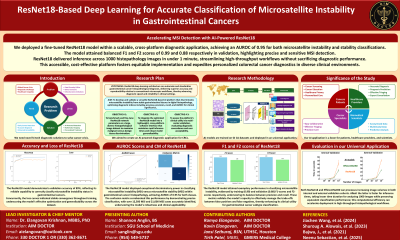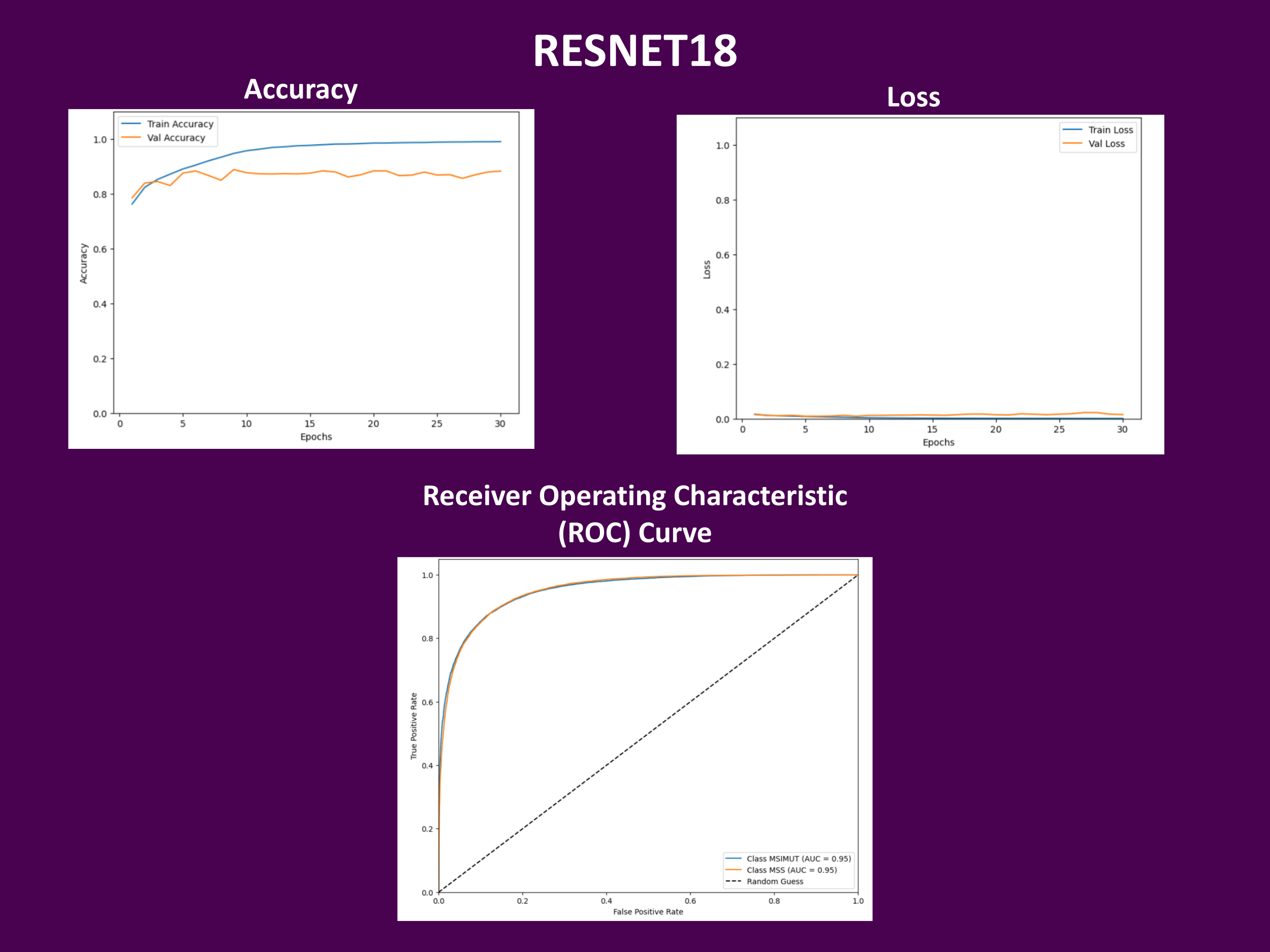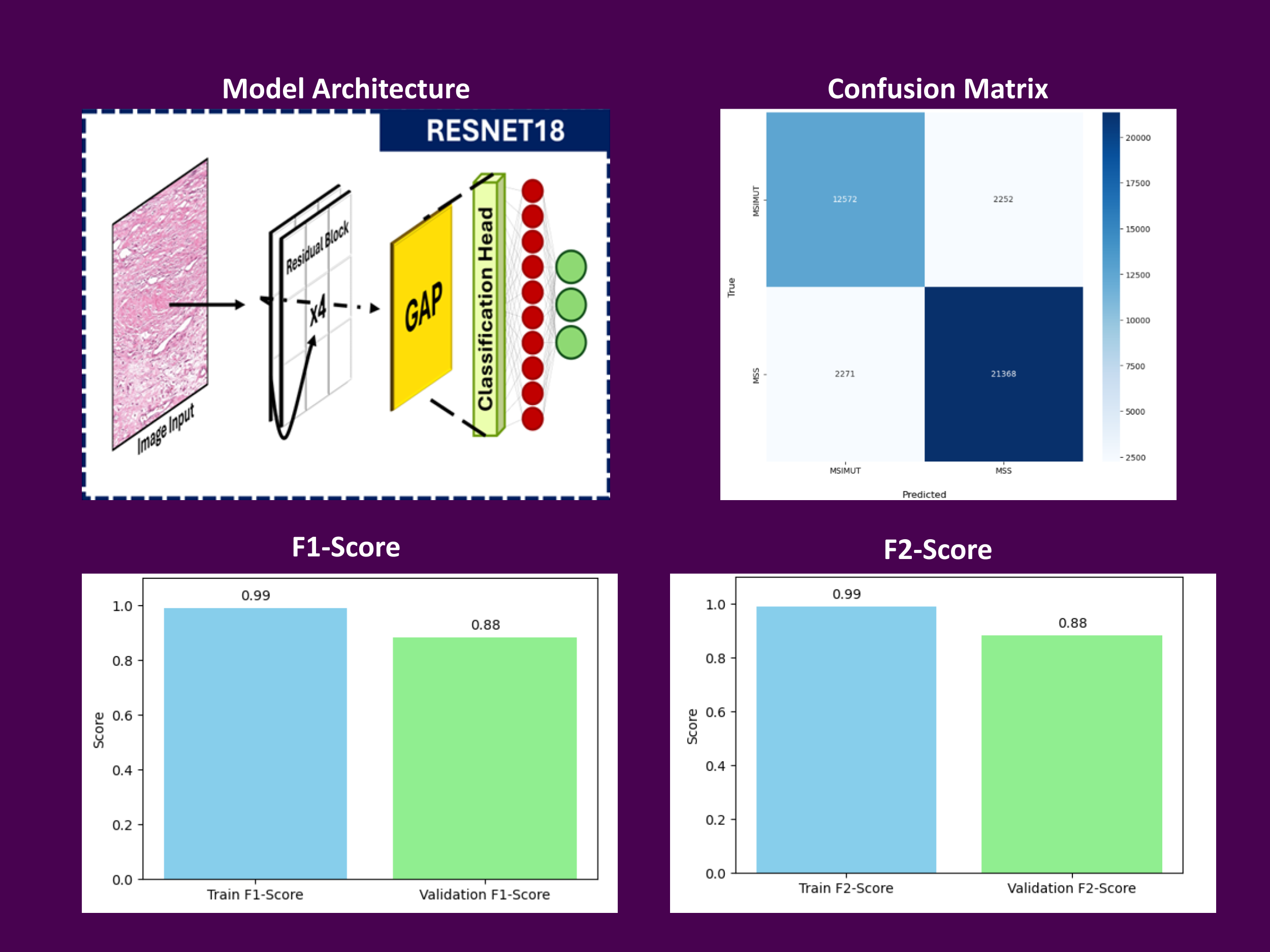Monday Poster Session
Category: Colon
P2453 - ResNet18-Based Deep Learning for Accurate Classification of Microsatellite Instability in Gastrointestinal Cancers

- SA
Shannon Anglin, BS
St. George's University School of Medicine
Phoenix, AZ
Presenting Author(s)
1St. George's University School of Medicine, Phoenix, AZ; 2AIM DOCTOR, Houston, TX; 3University of Texas Health Science Center, Houston, TX; 4GMERS Medical College and Hospital, Himmatnagar, Himmatnagar, Gujarat, India; 5AIM DOCTOR, Chennai, Tamil Nadu, India
Introduction: Microsatellite instability (MSI) and microsatellite stability (MSS) represent pivotal molecular subtypes in gastrointestinal (GI) cancers, each bearing unique prognostic and therapeutic implications. MSI, arising from mismatch repair deficiency, is associated with high tumor mutational burden and enhanced response to immunotherapy, whereas MSS denotes genomic stability and often portends different therapeutic strategies. Traditional MSI/MSS assessment via histopathology is labor-intensive and subject to interobserver variation. Recent advances in deep learning, particularly the ResNet18 architecture, offer unprecedented potential to automate and standardize molecular subtyping directly from digital pathology, thus expediting precision oncology.
Methods:
A comprehensive collection of histopathological whole-slide images (n ≈ 200,000) from GI cancer cases was curated and labeled for MSI and MSS status. Images underwent standardized preprocessing, including resizing, normalization, and color adjustment. The dataset was randomly partitioned into training (60%), validation (20%), and testing (20%) sets. ResNet18 was trained to classify MSI versus MSS, and model performance was evaluated using accuracy, F1-score, F2-score, specificity, area under the ROC curve (AUC), and precision-recall metrics.
Results: ResNet18 demonstrated robust performance in distinguishing MSI from MSS phenotypes. Validation accuracy reached 89%, with a training and validation F1-score and F2-score of 0.99 and 0.88, respectively. The confusion matrix confirmed strong separation, with over 12,500 MSI and 21,000 MSS samples correctly classified. ROC analysis revealed AUC values of 0.95 for both classes. Loss curves indicated stable convergence, and precision-recall metrics further underscored the model’s discriminative capability.
Discussion:
These findings position ResNet18 as a highly effective tool for automated MSI/MSS subtyping in GI cancer histopathology. By reducing diagnostic subjectivity and accelerating molecular classification, this AI-driven approach supports the integration of precision biomarkers into routine workflows. Universal deployment may democratize access to advanced diagnostics, empower clinicians with actionable molecular insights, and ultimately enhance patient stratification and outcomes in GI oncology.


Disclosures:
Shannon Anglin, BS1, Ramya Elangovan, 2, Jansi Sethuraj, BSN, RN, CCRN3, Kavin Elangovan, 2, Tirth Patel, MBBS4, Elangovan Krishnan, MBBS, PhD, MS5. P2453 - ResNet18-Based Deep Learning for Accurate Classification of Microsatellite Instability in Gastrointestinal Cancers, ACG 2025 Annual Scientific Meeting Abstracts. Phoenix, AZ: American College of Gastroenterology.
